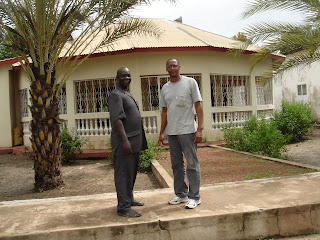This week, I’m writing this blog from Orlando, Florida
where I’ve been invited to participate in the semi-annual board meeting of
Wycliffe Associates. Although I’ve known
about WA for years, the past few months of starting to work with this mission
in a part-time consulting capacity has given me a new appreciation for the amazing
way they are impacting the world for the cause of Christ.
Not to be confused with Wycliffe Bible Translators (WBT) ,the
organization that raises Bible translation funds in the US, or the Wycliffe
Global Alliance, the international network of Wycliffe groups or SIL (Summer
Institute of Linguists) the cadre of professional linguists who do a lot of the
translation work, or even the Seed Company, the more recent newcomer that
mobilizes indigenous, grass-roots Bible translation teams, WA is actually an
independent organization, that is fully dedicated to support all of the above.
Co-located alongside WBT on a beautiful pond-filled property
generously donated to the mission, WA has become second to few in its ability
to mobilize volunteer men and women into second-career ministry work. Every
year, some 3800 men and women (mostly over 55) all across the US become engaged
in one way or another with WA, a huge number of whom will actually travel overseas
to teach school, construct a new facility or install a generator. On top of
that, WA raises virtually all of the funds necessary for these stalwart volunteers
to accomplish their task—some thirteen million dollars worth!
Since my friend and former MAF colleague, Bruce Smith took
over the CEO reigns of WA, this ministry has generated not only enough capacity
to respond to the needs the various Wycliffe groups mentioned above, but now has
room to spare for other national, indigenous church organization that are
committed to translating God’s word into a language that needs it. As a result,
WA has five full time Area Directors managing over 160 projects in their
respective regions of the world.
One noteworthy example was last year when WA volunteer
specialists installed over 70 satellite
communication devices in places like Nigeria giving remote, national
translation teams affordable, daily communication with their language
consultant specialists in other parts of the world. University professor, Dr.
Roger Morhlang, shared with me how this simple improvement alone has literally
shaved months and maybe even years off of the Old Testament project he is
consulting on with one of those Nigerian teams.
What will my role be with WA? To explore the organizational
development needs of the most needy indigenous translation agencies and then mobilize
some key professionals from among those 3800 volunteers who can provide
training and coaching for those that can use it.
I wish I could share more of the stories I heard in the
meetings today, but I trust that this
quick report stimulates you to learn more about the significant,
behind-the-scenes efforts Wycliffe Associates is performing in the world of
mission endeavor today. (Check out http://www.wycliffeassociates.org/)


















